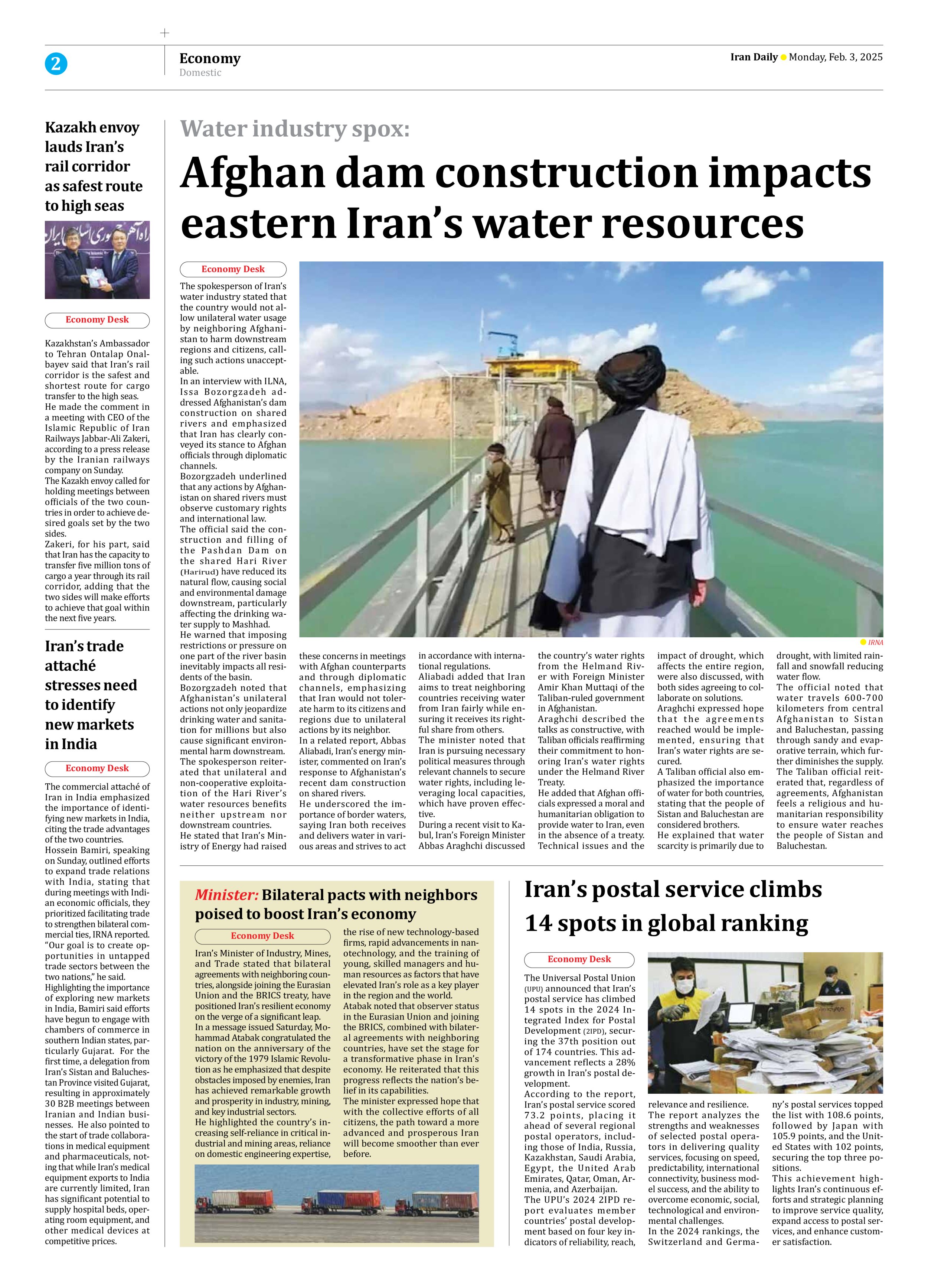
Water industry spox:
Afghan dam construction impacts eastern Iran’s water resources
The spokesperson of Iran’s water industry stated that the country would not allow unilateral water usage by neighboring Afghanistan to harm downstream regions and citizens, calling such actions unacceptable.
In an interview with ILNA, Issa Bozorgzadeh addressed Afghanistan’s dam construction on shared rivers and emphasized that Iran has clearly conveyed its stance to Afghan officials through diplomatic channels.
Bozorgzadeh underlined that any actions by Afghanistan on shared rivers must observe customary rights and international law.
The official said the construction and filling of the Pashdan Dam on the shared Hari River (Harirud) have reduced its natural flow, causing social and environmental damage downstream, particularly affecting the drinking water supply to Mashhad.
He warned that imposing restrictions or pressure on one part of the river basin inevitably impacts all residents of the basin.
Bozorgzadeh noted that Afghanistan’s unilateral actions not only jeopardize drinking water and sanitation for millions but also cause significant environmental harm downstream.
The spokesperson reiterated that unilateral and non-cooperative exploitation of the Hari River’s water resources benefits neither upstream nor downstream countries.
He stated that Iran’s Ministry of Energy had raised these concerns in meetings with Afghan counterparts and through diplomatic channels, emphasizing that Iran would not tolerate harm to its citizens and regions due to unilateral actions by its neighbor.
In a related report, Abbas Aliabadi, Iran’s energy minister, commented on Iran’s response to Afghanistan’s recent dam construction on shared rivers.
He underscored the importance of border waters, saying Iran both receives and delivers water in various areas and strives to act in accordance with international regulations.
Aliabadi added that Iran aims to treat neighboring countries receiving water from Iran fairly while ensuring it receives its rightful share from others.
The minister noted that Iran is pursuing necessary political measures through relevant channels to secure water rights, including leveraging local capacities, which have proven effective.
During a recent visit to Kabul, Iran’s Foreign Minister Abbas Araghchi discussed the country’s water rights from the Helmand River with Foreign Minister Amir Khan Muttaqi of the Taliban-ruled government in Afghanistan.
Araghchi described the talks as constructive, with Taliban officials reaffirming their commitment to honoring Iran’s water rights under the Helmand River Treaty.
He added that Afghan officials expressed a moral and humanitarian obligation to provide water to Iran, even in the absence of a treaty. Technical issues and the impact of drought, which affects the entire region, were also discussed, with both sides agreeing to collaborate on solutions.
Araghchi expressed hope that the agreements reached would be implemented, ensuring that Iran’s water rights are secured.
A Taliban official also emphasized the importance of water for both countries, stating that the people of Sistan and Baluchestan are considered brothers.
He explained that water scarcity is primarily due to drought, with limited rainfall and snowfall reducing water flow.
The official noted that water travels 600-700 kilometers from central Afghanistan to Sistan and Baluchestan, passing through sandy and evaporative terrain, which further diminishes the supply.
The Taliban official reiterated that, regardless of agreements, Afghanistan feels a religious and humanitarian responsibility to ensure water reaches the people of Sistan and Baluchestan.







